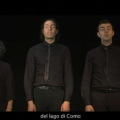“There are, of course, conspiracies in American life: Watergate was one; Enron seems to be another. And conspiracy theories have oozed through the history of the republic from the days of anti-Masonry onward. But it was Kennedy’s murder, coupled with Oswald’s, that left our era more inclined to reach for conspiracy as the explanation for certain events – from Roswell to the moon landing to Whitewater – that we cannot understand, or for some reason wish to believe never happened, or inflate with a significance they cannot possess.”
Freed From Conspiracy, By Thomas Mallon, November 21, 2003 New York Times
This editorial explained a lot to me. I have wondered why some people want to believe that there’s a conspiracy behind just about anything. When I frequented Internet discussion groups on behalf of Adaptec/Roxio, I observed people who insisted that just about everything that went wrong with computers was part of a Microsoft conspiracy to… what? Cause ulcers worldwide?
Everyone loves a good conspiracy theory, perhaps because, no matter how “fiendishly clever,” a conspiracy is easier to grasp than the huge, messy truth. Such theories are fun, but, even from my limited perspective on the vast corporate world, I think I saw what was actually happening.
Basically, any organization is considerably less than the sum of its parts. Your company may have many smart employees but, most of the time, they will not be able to use their smarts efficiently. So much gets in the way: individual egos, bureaucratic structures, territoriality, inertia, lack of resources, cultural and character misunderstandings (or the opposite, groupthink). Hell, it’s hard enough to overcome these kinds of problems in that much smaller organization, the family.
So most companies don’t work very well, and most of what any company manages to produce is the precious little that survives many trials by bullshit.
Which means that Microsoft, as a very large organization, is collectively very smart – but also very dumb. It’s certainly not smart enough to pull off the kinds of grand conspiracies that people wish to attribute to it. (Microsoft has tried to get away with all sorts of things, but has been amazingly dumb about it, for example leaving trails of incriminating emails. Hello? Are we a software company?)
Most national governments are even larger than Microsoft, with few agreed-upon goals (at least Microsoft has a clear goal of making money for itself and its stockholders), so governments seem even less likely to accomplish any hidden grand design. Very occasionally, a government manages to achieve a grand goal that everyone agrees on, out in the open. Master plans hidden away from public view either don’t remain hidden, or don’t succeed.
What all organizations aim for, from the largest to the smallest, is to SURVIVE. In any way possible. That’s what we all grope towards, however blindly or inefficiently. Companies are created to make money by producing goods and services. Governments come into existence to serve their citizens. But all types of organizations are sooner or later subverted to support the survival of the structure and the individuals within it. Hence, for example, the power of France’s large public sector. Everyone agrees that it would be best for France and her taxpayers were the numbers, salaries, and pensions of civil servants to be reduced – everyone except those civil servants themselves, and they can bring government to its knees with strikes.
Some politicians (and even some civil servants) start out with ideals or ideologies, changes they see a need for and hope to gain sufficient power to make. Yet almost all end up focused on retaining power, by hook or by crook. Is this because power is so inherently corrupting? Or just survival instinct? If you are part of the power structure, you’re more likely to survive, whatever happens around you.
It all goes back to Darwin. From the single gene, to the cell, to the conglomeration of cells we call an organism, on up to the family, the company, and the government, everyone’s fighting for survival, both individually and as a “body” of whatever sort. Should we mourn this inherent banality in the human spirit?
I think not. After all, this is what we – and all our fellow species – have evolved to do. If our ancestors had not been in it for survival, we wouldn’t be here to tell the tale.
But neither do we have to give in to it. The fight for our individual survival does not excuse us from giving others equal rights to life, liberty, and the pursuit of happiness. There will be excesses, rules and laws will be broken. Shake your head, sigh, keep pushing back. But don’t give in to the fallacy that it’s all a big conspiracy. If there were such a monster, we could find it and behead it. But there’s no single monster. What we’re up against are the many-headed monsters of stupidity, greed, and the survival instinct – in other words, “we have met the enemy, and he is us.”








